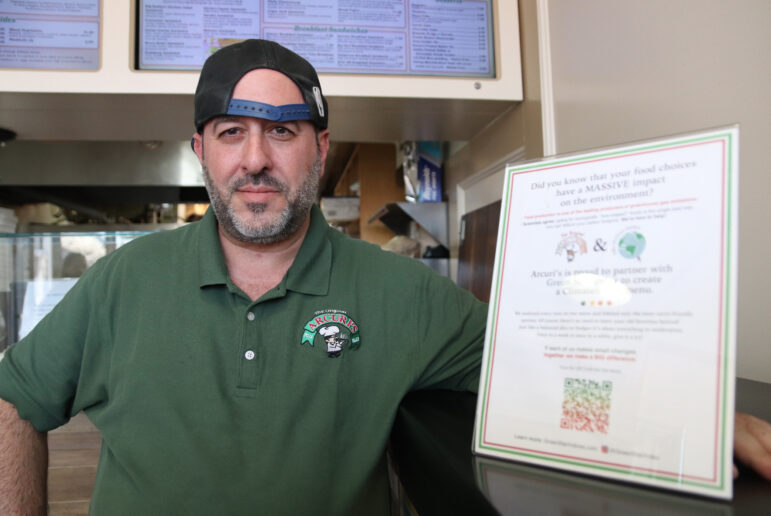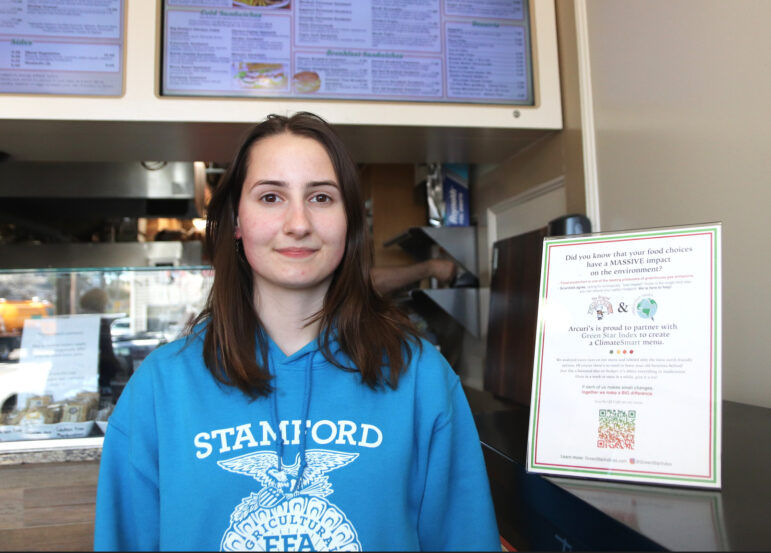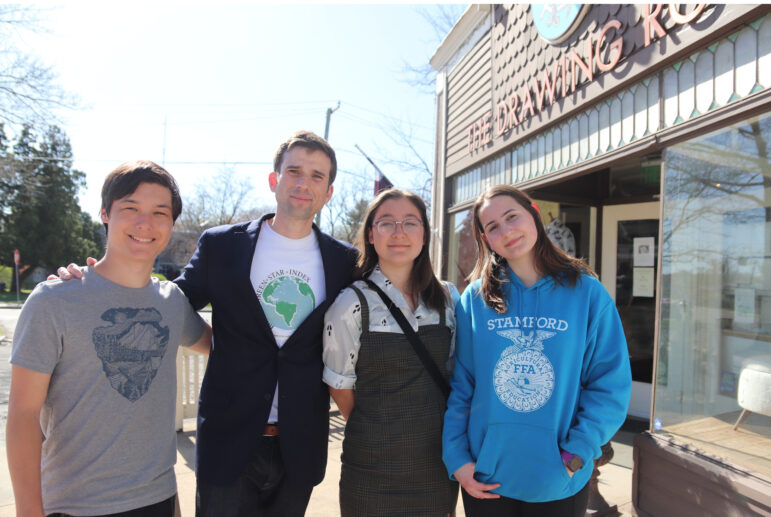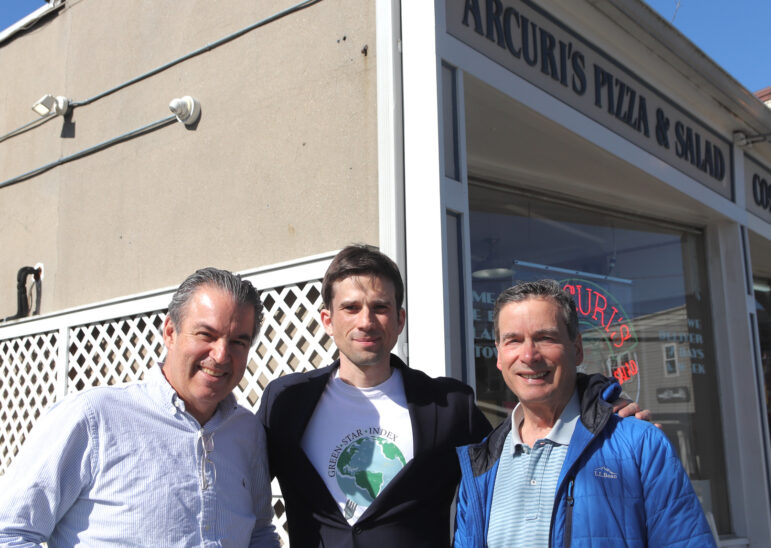Michael Infante grew up in Cos Cob’s hub, getting to know local merchants including Jamie Arcuri, whose eatery is popular for pizzas and salads, and Randy Caravella, owner of Post Wines & Spirits.
A couple years ago, Infante created “Green Star Index,” a system that helps consumers make greener choices about their diet. This week, just in time for Earth Day, he collaborated with Arcuri to index the familiar pizza and salad menu.
“The Green Star Index works by partnering with restaurants and helping them to label the relative ecological impact of different menu items,” Infante explained. “It helps people understand how their food choices have an impact on their carbon footprint, with some foods being tens or even hundreds of times more taxing on the environment than others.”
Infante’s idea is timely. Animal agriculture is a leading cause of climate change and a poor use of resources. Farmed animals and their feed occupy nearly 80% of global agricultural land, but they produce less than 20% of the world’s food supply. In addition to consuming resources, factory farmed animals produce emissions, and of course, animals suffer.

Infante, a restaurant copywriter, said his work experience made him think about challenges and opportunities in an industry where people are trying to be part of the solution, but may not really know where to start.
In September 2019, Infante presented his idea at Climate Week NYC, where his presentation was named the winner of a Shark Tank-style pitch by Global Shapers, a subsidiary of the World Economic Forum. Unfortunately, the pandemic took everyone by surprise, and not only did restaurants suffer, but Green Star Index was put on pause.
In Greenwich, with the advent of outdoor dining, restaurants are again thriving, and Infante’s partnership with Arcuri’s has been well received.
In an exercise in transparency, similar to calorie counts, the Green Star Index motivates people to consider – without necessarily going vegan or vegetarian – steps they can take to alter their diet and reduce their carbon footprint.
On his part, Mr. Arcuri said he always looks for ways to do something positive for the community.
“When Michael brought this idea to us, we jumped on it,” he said. “Everyone can to do their part when it comes to the environment, and when you understand what a big impact being informed can make, you realize that restaurants have a have a huge role to play.”
Arcuri said he was proud his restaurant was the first to implement a climate-smart menu.
“My wife, Brianna, has been a driving force to get us involved because she cares deeply about the environment – as we all should,” he said.

Nick Glekas, a familiar face at Arcuri’s, said customers have responded positively.
“Customers all want to know about what we’re doing,” he said. “It’s definitely time for a change.”
Westhill High School junior, Alexandra Tobiasiewicz, who attended the event with other members of her school’s Future Farmers of America chapter, said the climate smart menu dovetailed with what she was learning in the FFA Agri-Science program.
“Arcuri’s is the first pizzeria with the climate smart menu,” she said. “We’re here for Earth Day and to raise awareness of how food choices impact the planet.”
Alexandra said that while foods have unique properties, in general, plant-based foods are significantly better for the planet.
“At Agri-science I’ve learned a lot about food and environmental effects, and the foods that contribute the biggest carbon footprint are meat products and animal products in general. Here at Arcuri’s we have a menu that is color-coded for those food choices.”


“Certain foods have a larger impact on the planet because of how they are processed and the resulting gases released into the planet,” she added. “When cows are farmed, they produce massive amounts of methane, and they are in feed lots without real grass. They are consuming that could be going to people.”
“Any ruminant animal with more than one stomach, such as cows who have four chambered stomachs, go through a lot of grass digestion. That creates the byproduct of methane. Carbon dioxide and other byproduct greenhouse gases are also released during the processing of the food and the transportation of the food to the grocery store and so on. The whole process is one big carbon footprint.”
Alexandra said that to reduce your footprint, starting at Arcuri’s, the best items are salads.
“You can hydroponically grow a head of lettuce with very little water and nutrients, compared to raising a cow. It leaves such a small environmental footprint.”
“The next thing on the list would be something like a cheese pizza,” she said. “Even though cheese is an animal product, the base of a pizza is tomato sauce, which is made of tomatoes, and bread is made from plant-based ingredients. Yes, the cheese is from a cow, but it’s not as bad as adding, say, sausage to your pizza.”

Alexandra said Infante’s idea was not to attack people for their choices, but to offer a menu where customers can think twice about their choices.
“The more aware we are, the easier it is to take steps to change,” she said.
What’s next for climate smart menus in Greenwich? Infante said he hopes to collaborate with other restaurants in town.
“I hope more restaurants will consider implementing this,” he said. “Along with Greenwich Green & Clean and Waste Free Greenwich, we can help to make Greenwich the ‘greenest’ town in America.”
More information is available online about Green Star Index. Anyone who wants to learn more can reach Infante by email at [email protected].
More from Green Star Index on Instagram at @GreenStarIndex